Five podcasts you need in your life
A Nation Changes is a podcast that deserves to be held up as an example of how great podcasts can be produced
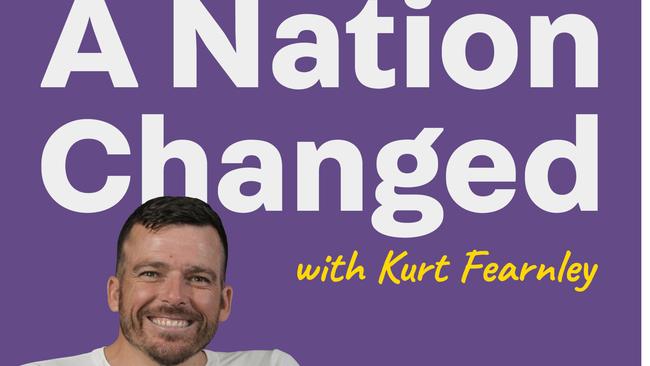
A Nation Changed, presented by disability support company Hireup, is a podcast that deserves to be held up as an example of how great podcasts can be produced independent of a large broadcaster or network. Hosted by Kurt Fearnley, probably Australia’s most likeable person, this series explores and explains how the National Disability Insurance Scheme was established, and the successes and failures that followed. There’s a great sweep of material covered in the four-episode season, and what a blessing it is to find a great podcast that can restrain itself to such a small run. Fearnley runs through some of the more technical detail in his own honeyed narration, allowing the interviewees to fill in the gaps with personal experiences and memories. The team here (with production provided by the ever-excellent Audiocraft Studios) secured interviews with key politicians, executives and, most important, disabled Australians whose lives were changed in various ways by the NDIS. What stands out here is the attention paid to what this story is really about. A Nation Changed is largely a podcast about the power of choice, agency and what happens when bureaucracies start to listen to those who matter most. Boiling down a story as complicated as the NDIS to these universal themes may seem simplistic, but this is what good documentary-making is really about. This is a podcast that communicates with real clarity and empathy. What was once the cottage industry of podcasts as commercial content has grown to a truly industrial scale during the past 18 months. A Nation Changed should be handed to any company interested in podcast play: here’s how you do it. The story is fascinating and a perfect fit for Hireup. But Hireup’s presence in the podcast is slim: there are no interminable ads or experts talking up the company inside the podcast itself. But there is still a shine received by presenting and owning a good podcast, and I’d bet that almost every listener will walk away thinking more of Hireup for their participation in the project.
Days Like These, a new weekly documentary podcast from the ABC, is a stealthily big play from the national broadcaster.
The show has been labelled by some as Australia’s belated answer to This American Life, a bit of a puzzling pigeon hole given the ABC’s own previous podcasts (including the excellent The Real Thing) and ongoing programs (Earshot, for example) that roughly fit the mould.
So if it isn’t our TAL, then what it is Days Like These? The show is pitched as a way for Australians to tell their very best story, with a new tale told every week.
Host Elizabeth Kulas is supported by a rotating team of reporters and a strong production team, and the work behind every episode is apparent. The stories range from quirky to deeply sad, and that variety is the essential ingredient in the mix, ultimately.
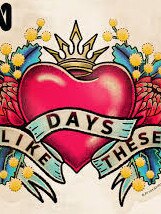
The appeal here is the intersection of the extraordinary with the everyday, driven by the power of first person accounts. The podcast bounces around from a pacy account of the search for a lost child’s toy to a description of how conspiracy theories have blown up families in lockdown.
The highlight to date is an episode about a surprising discovery at an opal mine in Lightning Ridge. It’s an indelibly Australian yarn told in a way that only an Australian hobbyist opal miner could tell it.
While the ABC’s splashy podcasts like The Eleventh or Trace deservedly tend to dominate discussions, and awards, it’s easy to underrate the scale of an undertaking like Days Like These. A year-round weekly podcast like this was a serious commitment of resources at a time of increasingly conservative commissioning.
It’s great to see a format like this backed in for the long term. It provides a platform for fun stories that deserve to be heard, and Kulas and her team hope the series can provide a form of an antidote, or a palate cleanse at the end of a brutal year.
The Wait stands out as one of the most ambitious, impressive and singular Australian podcasts in recent memory. During the past two years, journalist Nicole Curby has reported on the situation facing asylum-seekers in Indonesia.
That work has been translated into an independently produced five-part series co-hosted by Curby and Mozhgan Moarefizadeh, an Iranian refugee who has been stranded in Jakarta since 2013. Together, the pair document the frustrating lives of those thousands trapped in Indonesia.
The show was produced with the support of Michael Green, who won a Walkley Award for The Messenger, his own podcast on life inside a Manus Island detention centre.
As they explain it, the boats may have stopped but Australia’s reduced immigration intake has left a large cohort of asylum-seekers in Indonesia with nowhere to go.
This material could very easily bog down into a knotty exploration of concepts and how policy decisions were reached. But The Wait works because it keeps its focus firmly fixed on life on the ground.
This story is told through the experiences of Moarefizadeh and other asylum-seekers. It’s an effective mechanism for providing a narrative arc but, more important, it cuts through a story of enormous complexity by demonstrating the real stakes and consequences at play.
This podcast doesn’t entirely sidestep the bureaucratic tangle that created this quagmire, but those constant reminders of separated families and devastated lives make a clear point about the drastic impacts that lie at the end of a long chain of government decisions.
Importantly, The Wait also serves as an evocative portrayal of life in limbo.
Yes, there is despair, and frustration, and a sense of stasis. But there are also clear signs that, for some at least, a persistent spark still drives their lives forward while they wait. We hear of new relationships forming and small victories in the camps. This is an honest, inspiring and admirable piece of documentary work.
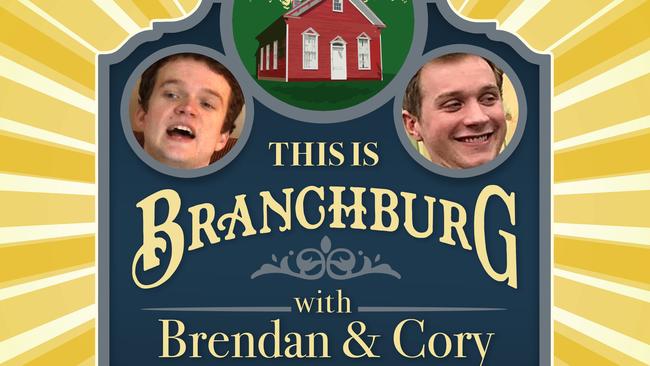
This is Branchburg
This is Branchburg, from Adult Swim, is consistently entertaining and a consistent surprise. Just be prepared for things to get weird.
The scripted comedy show, written and performed by comedians Brendan O’Hare and Cory Snearowski, was launched last year and it is about to wrap its second season. Much like Adult Swim’s television shows, this is a podcast built around bizarre, heightened material wrapped in a mundane setting.
One difference between Branchburg and some other similarly styled comedic podcasts is its less manic pace. Some other absurdist shows (such as the brilliant Richard’s Famous Food Podcast) jam so much into an episode that one punchline hasn’t even landed before the next starts running over the top.
Here, episodes are broken up into discrete scenes. Many are framed around the device of a fictional public radio station. We hear a news report of a civil war re-enactment held in a department store or notices from the local post office warning users to stop mailing unlabelled bowls of soup.
But most of the material is presented without any justification or context: voicemails, monologues, fights between neighbours. An early episode presents listeners with the memories of the town’s last milkman, who tells his story as a Martin Scorsese-esque journey from running the town to being squeezed out of the market by water drinkers teamed up with the local grocery store.
This really is a magical podcast on a few levels. The first, and most important, is that it’s consistently surprising and funny. That consistency is extremely difficult to achieve in a scripted audio show, and speaks to the talent of the writing and delivery.
But This is Branchburg also works because it feels vivid, with just enough audio production to bring scenes to life without overpowering the listener. The material speaks to a specific part of America (New Jersey), but also a specific kind of municipal life where small events are big news.
That deliberate, narrow geographic anchor brings the material to life, but the jokes are general enough that far-flung audiences can feel included.

Thin Black Line, from ABC Indigenous, is a timely investigation of a decades-old tragedy.
The six-part series, hosted by Allan Clarke, tells the story of Aboriginal teenager Daniel Yock, who died in police custody in 1993. Yock’s death sparked an enormous protest in Brisbane and still presents a heavy emotional burden on Queensland’s Indigenous community today.
The opening episodes of Thin Black Line are a little bit of a jumble, as the events surrounding Yock’s arrest and death are broken up by various contextual interviews. Although it’s clear from the start that this tragic cascade remains heavily disputed, the true stakes in this story aren’t clear for some time.
But once things get rolling, this show builds real momentum around some alarming and compelling material.
Good true-crime podcasts need to be about more than one painful event. Clarke and his team do an excellent job of connecting Yock’s death to a broader history of deprivation, abuse and distrust. This is a story that feels relevant to Brisbane, to Queensland, to Australia three decades on.
Sensitive reporting here has won over a series of strong exclusive interviews, and the strongest components of Thin Black Line are built around those first-hand accounts of Indigenous Australians.
“It’s just sad that we had to live without him in our lives for this long,” says Yock’s sister, Irene Landers. “You know what the main theme over in America is: Black lives matter. Why shouldn’t it matter here too?”
Clarke is an experienced hand when it comes to podcasting, having hosted the inaugural season of the ABC’s investigative masthead, Unravel. Some similar sensibilities from that show carry over into Thin Black Line, most notably in the sound-rich reconstructed sequences that have become a hallmark of the ABC’s narrative podcasts.
By the time this podcast reaches a 1994 independent investigation into Yock’s arrest and death, the listener already knows the outcome. But more important, we understand the cynicism and exhaustion that Yock’s family and friends felt at the time, before the verdict was even read.
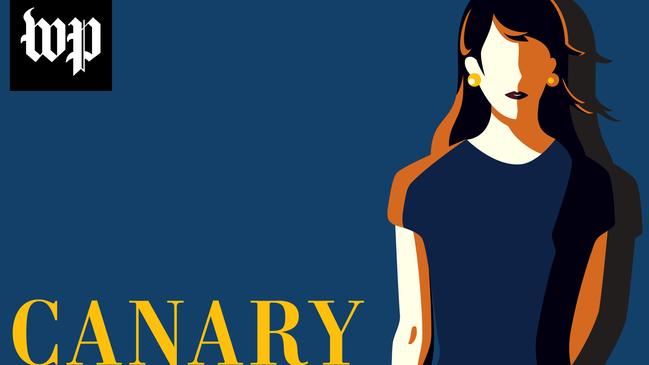
Canary
Canary, from The Washington Post, is a fastidious depiction of the many obstacles facing victims of sex crimes.
The new podcast, hosted by Post reporter Amy Brittain, starts with the story of a woman sexually assaulted on the streets of Washington, DC.
Her story appears shocking in sadly unsurprising ways: weak prosecution is followed by a lax sentence and limited monitoring.
But then things take a turn with the introduction of a second, far more powerful offender.
This is difficult, confronting material and the Canary team doesn’t pull any punches when it comes to describing the crimes or the impacts they have. It can be a terribly difficult balance for writers to strike, as many listeners will just bounce off a podcast that is too graphic, but omitting too much can feel dishonest to the victims and to the story.
This story is largely framed through Brittain’s own path through it, and there’s plenty of instructive value in the mountain of investigative work required to stand up these stories. It’s a steep challenge for a journalist, and a far steeper one for the abused.
Admirably, Brittain also refrains from turning this into a lesson about a system. This is just presented as a completely reported story, with clear conclusions left for the listener to draw.
The writing does occasionally falter, with strangely redundant details slipping through an otherwise attentive edit. We hear about a letter from 1975, only to be told soon after that it’s 45 years old. The occasional interjection addressing the listener with ‘now, at this point you may be wondering’ feels similarly incongruous.
Those rough edges stand out largely because Canary is an overwhelmingly polished and tasteful production. Music is used sparingly and never underneath the podcast’s more emotional stretches.
And while this does serve as a ride-along as the listener follows Brittain on the trail, her own presence as a character is scant. The focus stays firmly on the story, as it should.
Finding Desperado
Hosts Alexei Toliopoulos and Cameron James delivered the ABC a cult hit podcast last year inFinding Drago, an absurd investigation that treated a piece of Rocky Balboa fan fiction like the Rosetta Stone.
It’s a good formula: a thoroughly silly story told thoroughly. And the pair are back with another shaggy-dog story of online marginalia: Finding Desperado.
The new show swaps out fan fiction for arthouse cinema, as the hosts try to track down a Dutch director who once held the Guinness World Record for the youngest creator of a feature film.
The man in question is Lord Sidney Ling, who claims – in some archaic blogs – to be a being of light more than 3,000 years old, and to have directed among other things a 24-hour long documentary about the party island, Ibiza.
It’s all tremendously bonkers, which is pretty much the point. These are podcasters largely interested in the intersection of fan culture and the internet’s capacity to develop folklore.
The same ripping production that carried Finding Drago returns, with mundane story beats transformed through the cliches of B cinema. “Well, let’s start a Google montage”, Toliopoulos says in the first episode, as the pair then type words into a search engine to a soundtrack of 80s action cheese.
And, as with Drago, it’s unclear to what extent the hosts are in on the joke. But it is apparent how much fun they’re having in telling this ridiculous story, and it’s their chemistry, and their genuine affection for the material that is the juice that makes this whole podcast run.
The layering of themes is a little cleaner this time around, too. This is also a story of cultural appreciation from afar, and that distinct sense of loneliness and longing that comes from being a film buff in a country that doesn’t make many films.
But, in the era of the internet, you don’t need to live in Los Angeles to feel connected. And those earnest online communities give James and Toliopoulos a lot of great material to work with.
Goodbye to All This, from the BBC World Service, is a podcast about “life, loss and grief and coming back out the other side”.
In it, Australian radio journalist Sophie Townsend tells a deeply personal story about the death of her husband in 2012.
Townsend recounts her story in roughly chronological fashion, but this isn’t a concrete tick-tock of events. Instead, things are presented in a hazier fashion, a kind of impressionistic take on the narrative format.
There are no dates and few locations, creating a looser rendering that anchors the listener to Townsend’s experiences, and her relationships with family and friends.
These memories are all recounted in present tense, a strong creative choice that saves Goodbye to All This from feeling like a forensic examination of one woman’s grief.
That vivid narration is punctuated by occasional interviews with her family and close friends, who share their memories of events.
It’s a clever choice to occasionally change gears and provide an outside perspective that allows the audience to step away from the podcast’s timeline for a moment and reflect.
Townsend is a truly talented audio maker, and an experienced head that the ABC often relies on to workshop the broadcaster’s trickier projects.
Here she has teamed up with British producer Eleanor McDowall, and the pair make for a strong team, supporting the personal writing with a restrained backdrop of atmospheric audio and music.
Goodbye to All This never tips over into maudlin territory. This is as much a story about love, and the bonds of a marriage, as it is about loss, and the most evocative stretches in these early episodes come in Townsend’s descriptions of a life lived together.
It’s tremendously sad in parts, but is ultimately a sense of dread and anxiety that hangs over a cancer diagnosis.
This is a rare podcast that feels like a cricket ball stuck in your stomach.


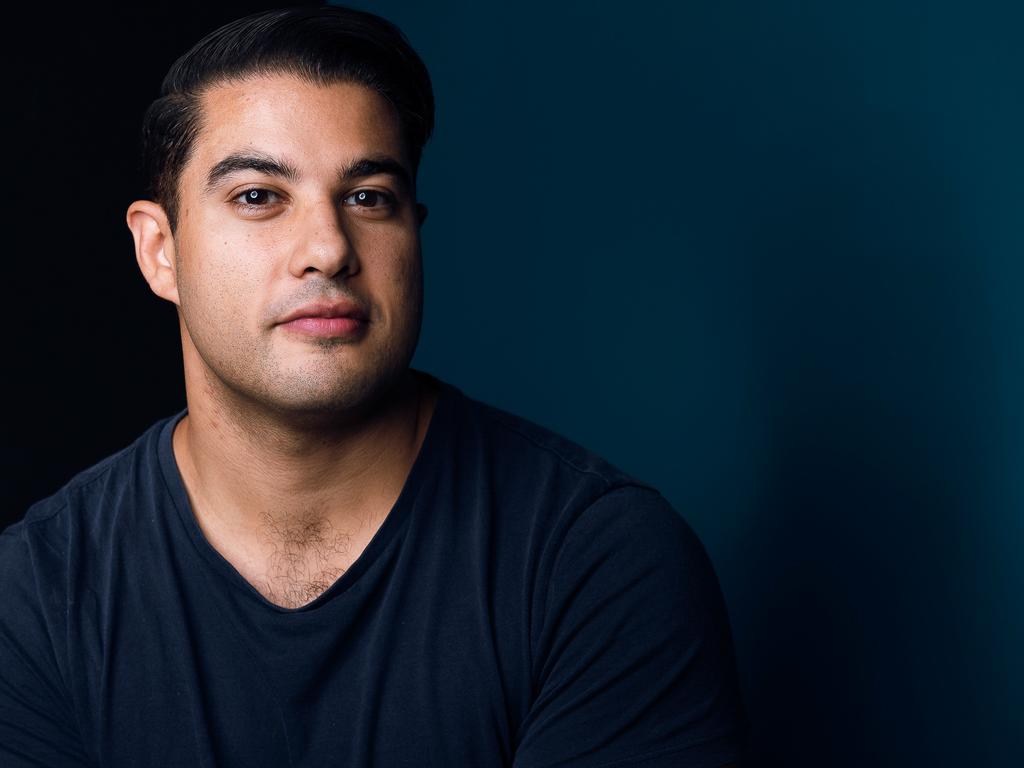
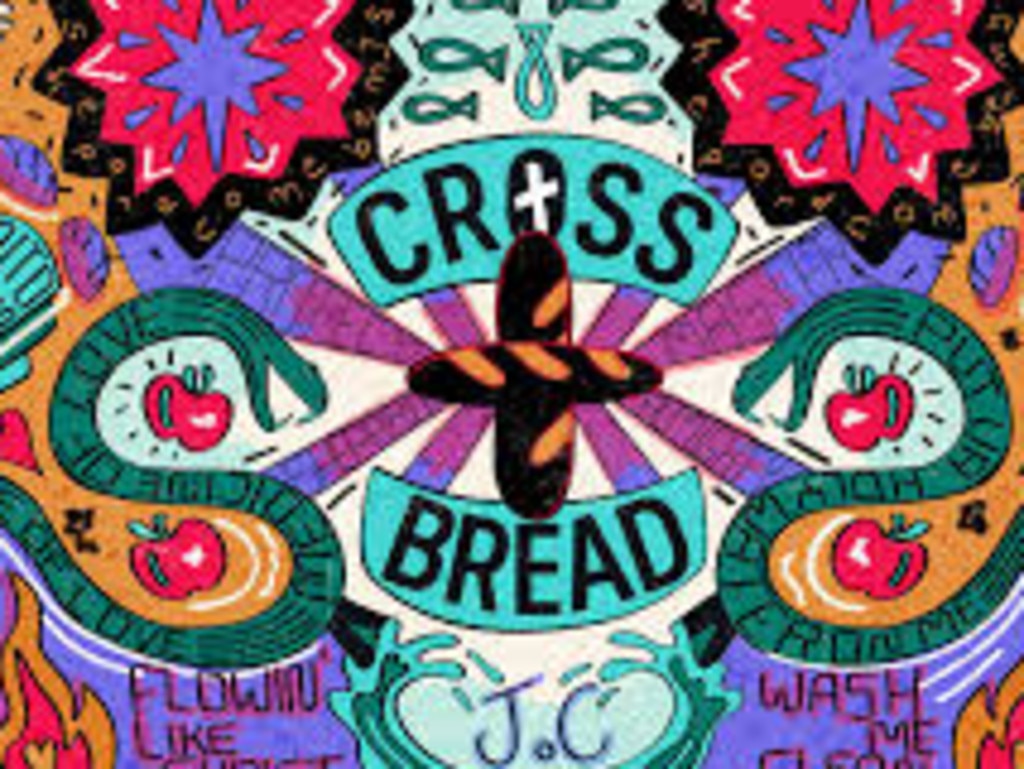



To join the conversation, please log in. Don't have an account? Register
Join the conversation, you are commenting as Logout